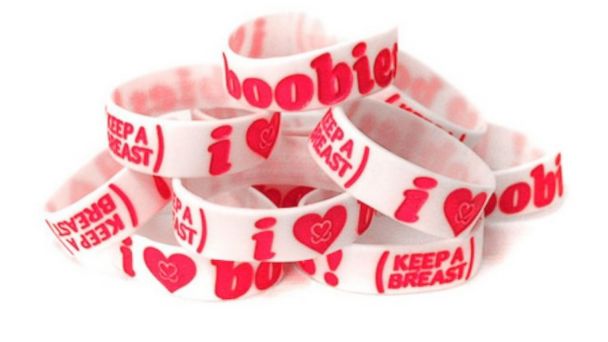Middle Schoolers' 'Boobies' Bracelets Could Go to Supreme Court
A Pennsylvania school board has voted to take to the Supreme Court its case against two middle school girls over " I (heart) boobies!" bracelets, which the students wore to raise awareness about breast cancer.
The Easton Area School District voted 7-1 Tuesday night to appeal a federal appeals court decision from August that ruled in favor of the girls and found the bracelets were not lewd or disruptive.

"We will be filing a petition with the Supreme Court," district solicitor John Freund told ABCNews.com. The school district has until December to file its petition, but the parties will not know if the court will hear the case until the spring.
"Other courts have found banning of these bracelets to be a constitutional and permissible exercise of school authority," he said. "Case law gives schools the authority to ban material deemed lewd, obscene, profane or vulgar."
The case dates back to 2010, when students Brianna Hawk and Kayla Martinez, then 12 and 13, were suspended for wearing and distributing the bracelets, produced by the nonprofit Keep A Breast organization, during the school's breast cancer awareness day.
The girls went to the ACLU, which agreed to take up their case.
In August, the Third Circuit U.S. Court of Appeals upheld a lower court's decision to lift the ban on bracelets, writing in a majority opinion that "just because letting in one idea might invite even more difficult judgment calls about other ideas cannot justify suppressing speech of genuine social value."
Lawyers for the girls said if the court decides to hear the case they plan to continue the fight.
"We think the Third Circuit got it right and we're surprised that the school district has set a high priority on attacking speech," said Mary Catherine Roper, the lead ACLU attorney defending the girls.
"Our contention is that this wasn't lewd. Everyone knew these bracelets were about breast cancer awareness," she said. "The Third Circuit found this is speech about an important social issue. The court says if there is ambiguity about lewdness, but no ambiguity about a genuine social value, then you have to go with protecting free speech."